A blaring beep startles freshman Tristen Banks awake. One of her hands reaches up to rub the stubborn sleep out of her eyes, while the other searches around to muffle the sound of her alarm. Banks goes through her morning routine and when she heads outside with her backpack, the sky is still a dark indigo and there is a soft squish of mud when she steps into the grass. She checks the time; it is 6:20 a.m.
As of 2020, there were 1,123 Parkway students who were a part of The Voluntary Interdistrict Choice Corporation (VICC) Program who, in one way or another, shared an experience like Banks.’ This program helps to desegregate schools by sending inner-city students to suburban schools and vice versa. However, the VICC Program has slowly been phasing out for about a decade and with the conclusion of the program, many school districts, including Parkway, will no longer allow Black students from the city to attend schools in suburban areas. The VICC Program is accepting students through 2024, with a priority on siblings of students that are already in the program. By 2036, VICC students will no longer be attending Parkway schools. According to Parkway’s VICC Program facilitator Rakiyah Talavedra, out of the 15.8% of Parkway’s Black student population, VICC students make up about 13% of Black students throughout all Parkway Schools.
“The vast majority of students who do participate in the program are African-American students, so if we no longer had those students with us, we would definitely notice that and be missing that diverse population,” Assistant Principal Mario Pupillo said. “That’s not to say all African-American students—obviously, we have a lot of African-American students that both participate in that program and are residents of Parkway School District. But if you removed the [VICC Program], we’d notice the difference there.”
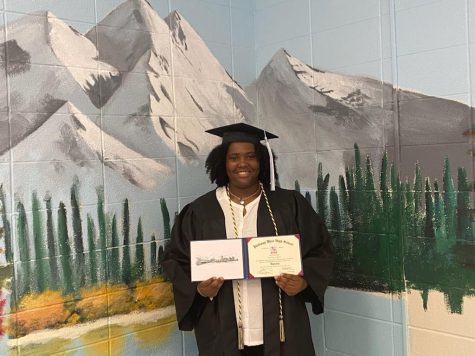
Alumni Tia Reed, a former participant of the VICC Program who graduated in 2020, says that her bus ride to school was about 90 minutes long, but that did not deter her from participating in the program.
“My parents believed that I would have better opportunities to be successful being a part of the VICC Program,” Reed said. “I think I wouldn’t have had the amount of support I got from the teachers and staff from Parkway if I didn’t participate in the program.”
In addition to giving students a chance to learn at different schools, VICC provides transportation to and from activities so that students who live in the city have the chance to participate in school activities.
“VICC has helped me opportunity-wise; this year was my first year with softball, so VICC was my transportation there and VICC has given me an opportunity to experience a sport that I may want to go with in life. Without VICC, I wouldn’t have gotten to experience softball and mingle with other kids who were different from me. It might be something others might want to do in college as far as a career in life. Without VICC, I wouldn’t have had the mindset to do that,” Banks said.
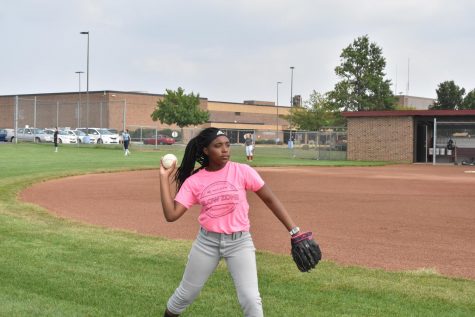
The VICC Program had been in a state of flux since 2008 when the program was originally set to end. The program has actually been revived by extension twice but has finally been planned to officially end in 2024, as a result of an initiative to ban programs based on race. Despite the program always being temporary, there’s been a negative response from students and families toward the ending of VICC, as students who were formerly able to participate in the program would have to stay within the city’s public and magnet schools without access to the higher-ranking districts, such as Kirkwood, Rockwood and Parkway. However, Reed can see both the advantages and disadvantages of the program ending.
“If the VICC program were to discontinue, the city schools would have the opportunity to use the funds that are taken from them by the deseg[regation] program to improve the quality of schools located in the city,” Reed said. “On the other hand, taking away deseg[gregation] students would not only hurt the overall diversity of the school but would also hurt the diversity among Black students. The small number of Black students that would be able to attend Parkway wouldn’t have enough people that look like them attending school. Students would feel uncomfortable in a school setting such as this.”
The remaining spots in the program continue to shrink until 2024 when there will be no new students accepted.
“I think siblings should have the same opportunities that their older siblings had, but I believe that either the VICC program should continue fully or discontinue completely. Allowing only siblings to attend is a tease to city students that don’t have a sibling already in the program. It will not be enough to keep as many Black students as before because the purpose of the sibling tag is to eventually phase out the deseg[gregation] program,” Reed said.
Banks has a younger sister who will be attending Parkway in the 2021-2022 school year. That school year is when schools will start to see a drastic shift in the number of students that will be accepted. Banks’ sister will be one of the 175 students in the VICC Program that will have a chance to participate in the program.
“Even though my sister is one of the kids who will be able to go, it’s not fair for the other students who can’t,” Banks said. “If Parkway was doing that to me, I wouldn’t be the same, my education wouldn’t be the same if I was going to a different school because Parkway’s education and curriculum are good [for me] and very known.”
Furthermore, Banks believes that the diversity of her education is preparing her, as well as other students, for life after high school in the real world.
“[Students] need to learn about other cultures and the different ways that people live. It’ll affect those kids because they’re not growing up with people different from them,” Banks said. “That may have other students thinking differently on us, like us Black kids, because they haven’t interacted with us. And that goes for everybody. I have friends who aren’t Black and I don’t think I wouldn’t have gotten the chance to mingle with someone different from me if there was no diversity in school.”
Only 2% of Parkway’s African-American population are residents of the district, according to Talavedra. Reed believes that this 2% of African-Americans will not be enough in the coming years and that the loss of the VICC Program’s added diversity will impact not only the remaining African-American students who are residents of Parkway but all students who attend schools in the district.
“In the real world, students will interact with people from all kinds of backgrounds and I think high school should help prepare students for this. I think that the school environment will be affected by school clubs, sports and peer groups. Students will only have to interact with a very small demographic of [Black] students,” Reed said.
Pupillo additionally notes that racial diversity is not the only diversity we need in schools that the VICC Program helps provide.
“[We would be] noticing a lack of diversity, and even diversity that goes beyond race, diversity of culture, experiences, knowledge, geography, just all those different things that students that reside in St. Louis CIty bring to our building when they come every day,” Pupillo said. “There’s a lot of opportunities there, to learn and share and grow together, and I think that’s a piece we would miss.”



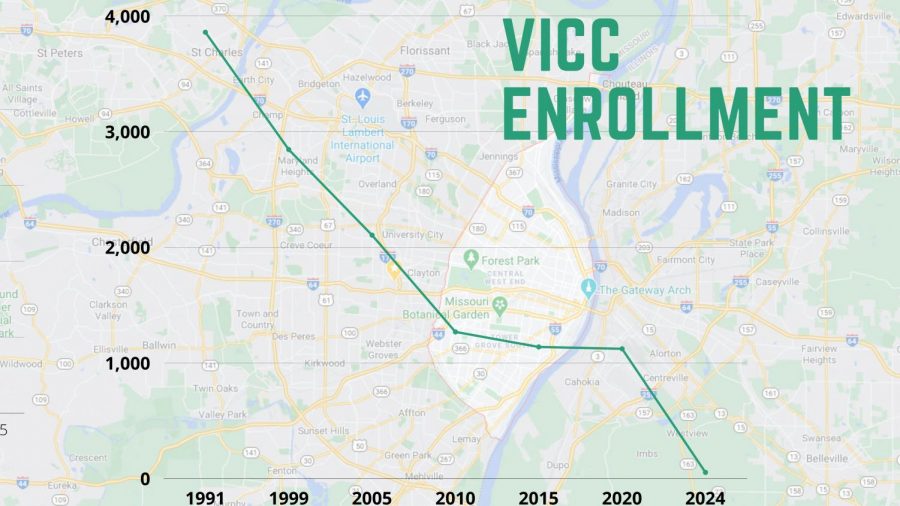

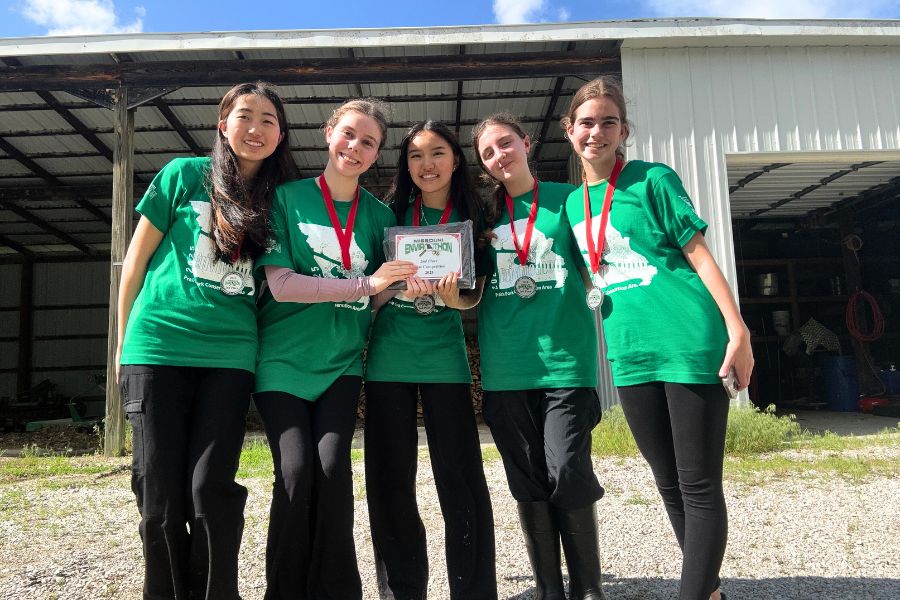
![Senior Adam Zerega stands with senior Dexter Brooks by farm equipment. Zerega often worked with friends and family on his farm. “I've been able to go to my family's farm since I was born. I [spend] at least three weekends a month [on the farm], so I'm there all the time,” Zerega said.](https://pwestpathfinder.com/wp-content/uploads/2025/04/IMG_4872-1200x900.jpg)
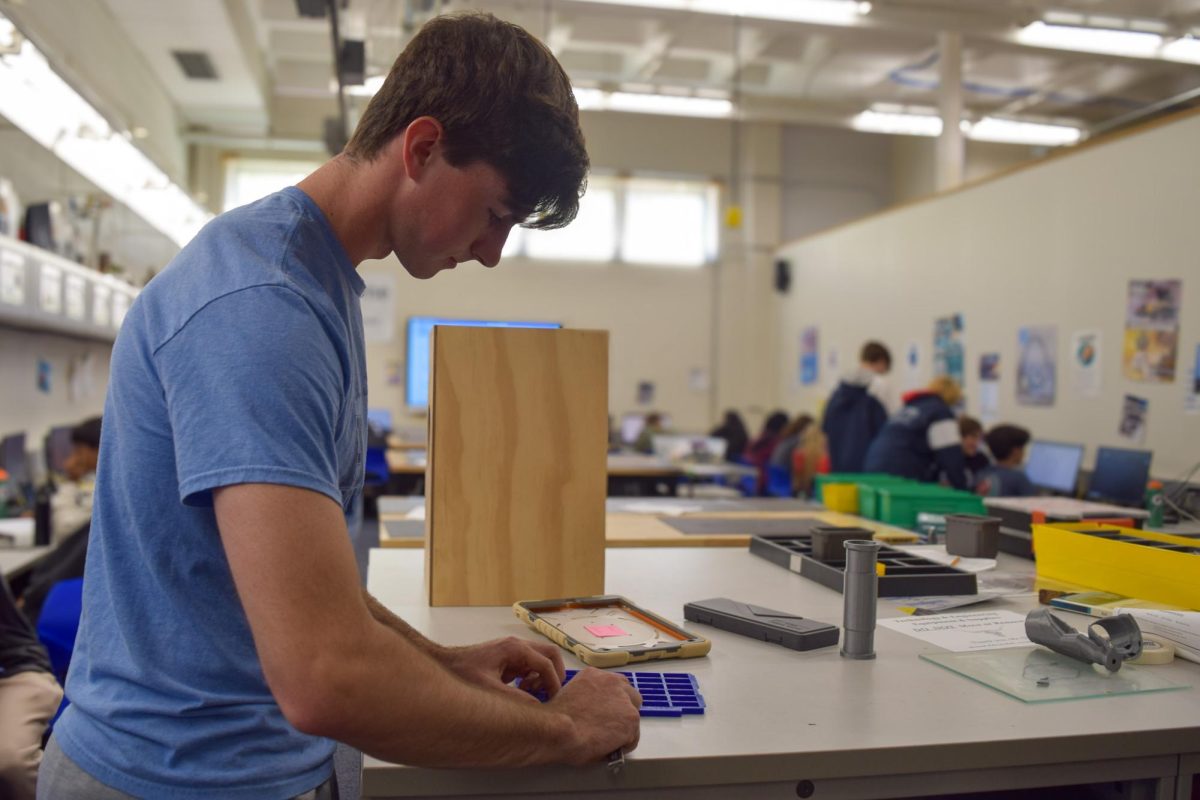
![Phage grown by senior Rio Naghibi Harat sit in petri dishes. Through Webster University, Naghibi Harat was given the opportunity to develop phage as a potential remedy for tuberculosis. “Phage are everywhere. I got mine from a soil sample. I'm not kidding; I picked [it] up from dirt. They're harmless, unless you code them to do something, and they can evolve. Virus antibiotics can't. They're one solid molecule. A strain of this bacteria [can evolve] that is resistant to [a] particular drug, [but] phage will evolve with the bacteria. They can see the changes, and they can be the change,” Naghibi Harat said.](https://pwestpathfinder.com/wp-content/uploads/2025/04/Flag-2.png)
![Hosting a meeting for Women’s History Month, co-president Bethany Liao converses with club members of Women in Healthcare. The event fostered discussions about women in medicine and included a third year medical student from Bosnia as a guest speaker. “Creating this club has been a net positive experience for everyone. After we present [or a guest speaker], we [also] usually have snacks for everyone and it gives people an opportunity to generally talk or discuss,” Liao said.](https://pwestpathfinder.com/wp-content/uploads/2025/04/DSC0032-1-1200x800.jpg)
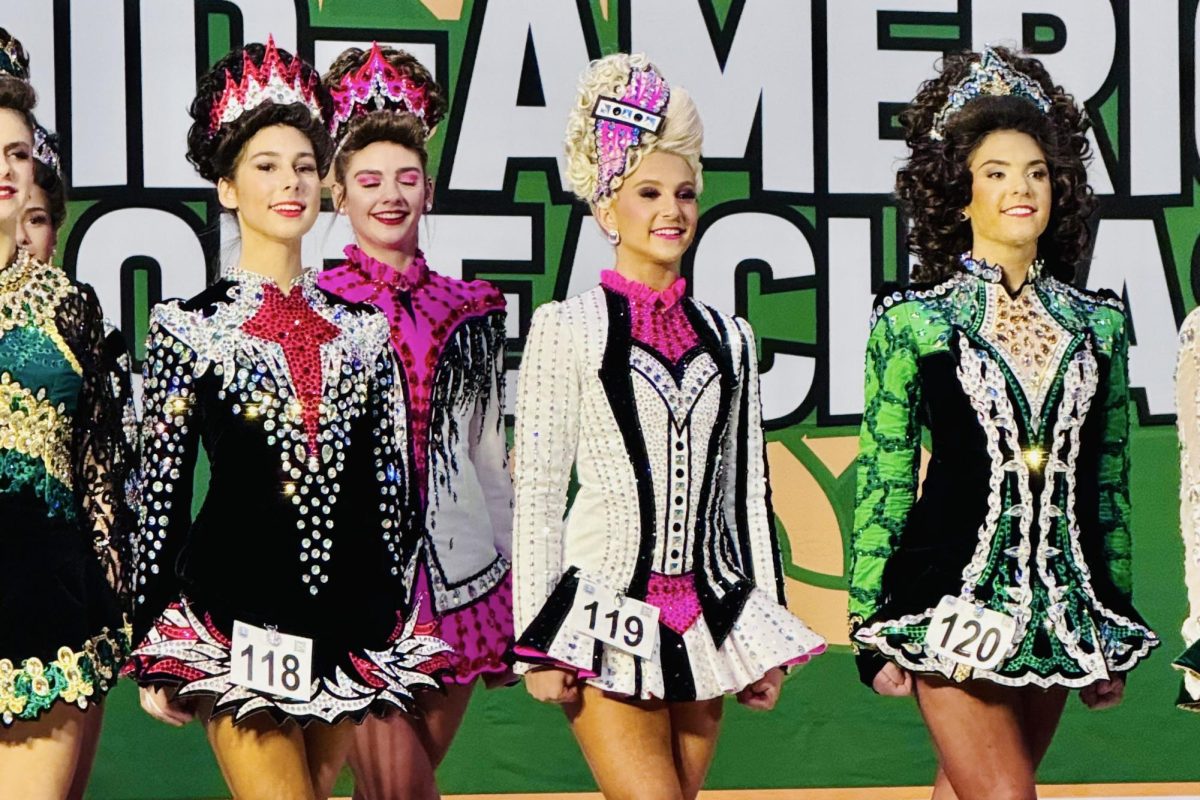
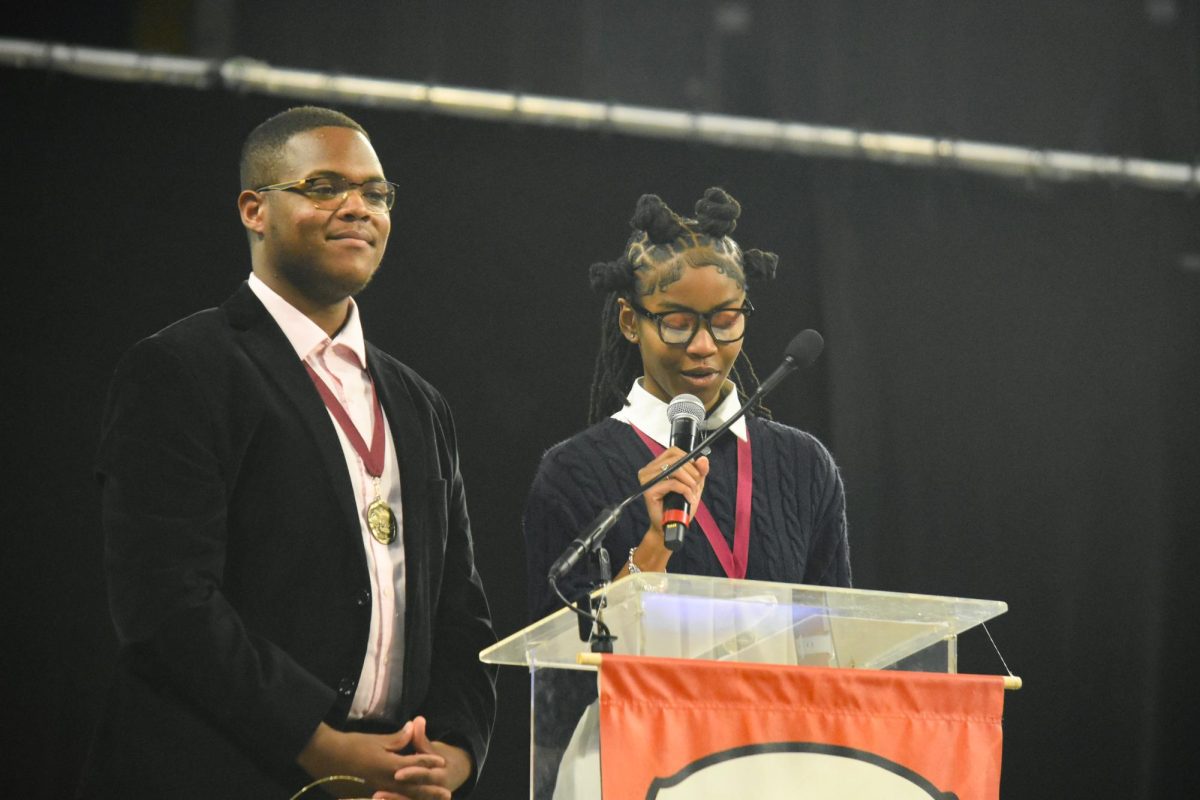
![Scrolling on eBay, sophomore Ryder Williams searches the app for different shoe styles. Williams credits the impact his completion of business and finance courses have had to gain his financial success, as well as his Personal Finance teacher, Andy Croley. “Croley helped me a lot in getting to know more about profit and where to put the money. [He] also [taught me] how to store my money, ways to invest it [and] that I should always have emergency funds,” Williams said.](https://pwestpathfinder.com/wp-content/uploads/2025/02/ryder-fea-3-1200x800.jpg)


![Junior Fiona Dye lifts weights in Strength and Conditioning. Now that the Trump administration has instituted policies such as AI deregulation, tariffs and university funding freezes, women may have to work twice as hard to get half as far. "[Trump] wants America to be more divided; he wants to inspire hatred in people,” feminist club member and junior Clara Lazarini said.](https://pwestpathfinder.com/wp-content/uploads/2025/05/Flag.png)
![As the Trump administration cracks down on immigration, it scapegoats many immigrants for the United States’ plights, precipitating a possible genocide. Sophomore Annabella Whiteley moved from the United Kingdom when she was eight. “It’s pretty scary because I’m on a visa. When my visa expires next year, I’m not sure what’s going to happen, especially with [immigration] policies up in the air, so it is a concern for my family,” Whiteley said.](https://pwestpathfinder.com/wp-content/uploads/2025/05/DSC_0077-7copy.jpg)
![Shifting global trade, President Donald Trump’s tariffs are raising concerns about economic stability for the U.S. and other countries alike. “[The tariffs are] going to pose a distinct challenge to the U.S. economy and a challenge to the global economy on the whole because it's going to greatly upset who trades with who and where resources and products are going to come from,” social studies teacher Melvin Trotier said.](https://pwestpathfinder.com/wp-content/uploads/2025/05/MDB_3456-1200x800.jpg)

![Pitching the ball on Apr. 14, senior Henry Wild and his team play against Belleville East. Wild was named scholar athlete of the year by St. Louis Post-Dispatch after maintaining a high cumulative GPA and staying involved with athletics for all of high school. “It’s an amazing honor. I feel very blessed to have the opportunity to represent my school [and] what [it] stands for,” Wild said.](https://pwestpathfinder.com/wp-content/uploads/2025/05/unnamed-6-1200x714.jpg)
![Red, white and blue, the American flag holds the values of our democracy. The fight that we once endured has returned, as student journalists and senior correspondents across the country are losing their voices due to government control. “[Are] the White House and [the] government limiting free speech [and] freedom of the press? Yes [they are],” chief communications officer of the Parkway School District and former journalist Elisa Tomich said.](https://pwestpathfinder.com/wp-content/uploads/2025/03/Untitled-design-14.jpg)
![Freezing in their position, the Addams Family cast hits the “rigor mortis” pose after cast member and senior Jack Mullen, in character as Gomez Addams, calls out the stiff death move. For the past four months, the combined company of cast members, orchestra pit, crew and directors all worked to create the familial chemistry of the show. “I’m excited for [the audience] to see the numbers, the music, the scenes, but I also just love all the technical aspects of it. The whole spectacle, the costumes, makeup and the people that put in the work backstage in order to make the show successful on stage. I’m excited for people to see and appreciate that,” Mullen said.](https://pwestpathfinder.com/wp-content/uploads/2025/03/DSC0116-1200x800.jpg)
![A board in the Parkway West counseling department displays pennants of selective universities. With a wide range of students interested in attending, it’s important that these schools have clear priorities when deciding who to admit. “[Washington University] had the major that I wanted, psychology, philosophy, neuroscience. That's a holistic study of the brain, and [WashU is] the only college in the world that offers that. That's the main reason I wanted to go; I got into that program,” senior Dima Layth said.](https://pwestpathfinder.com/wp-content/uploads/2025/02/Flag-1.png)
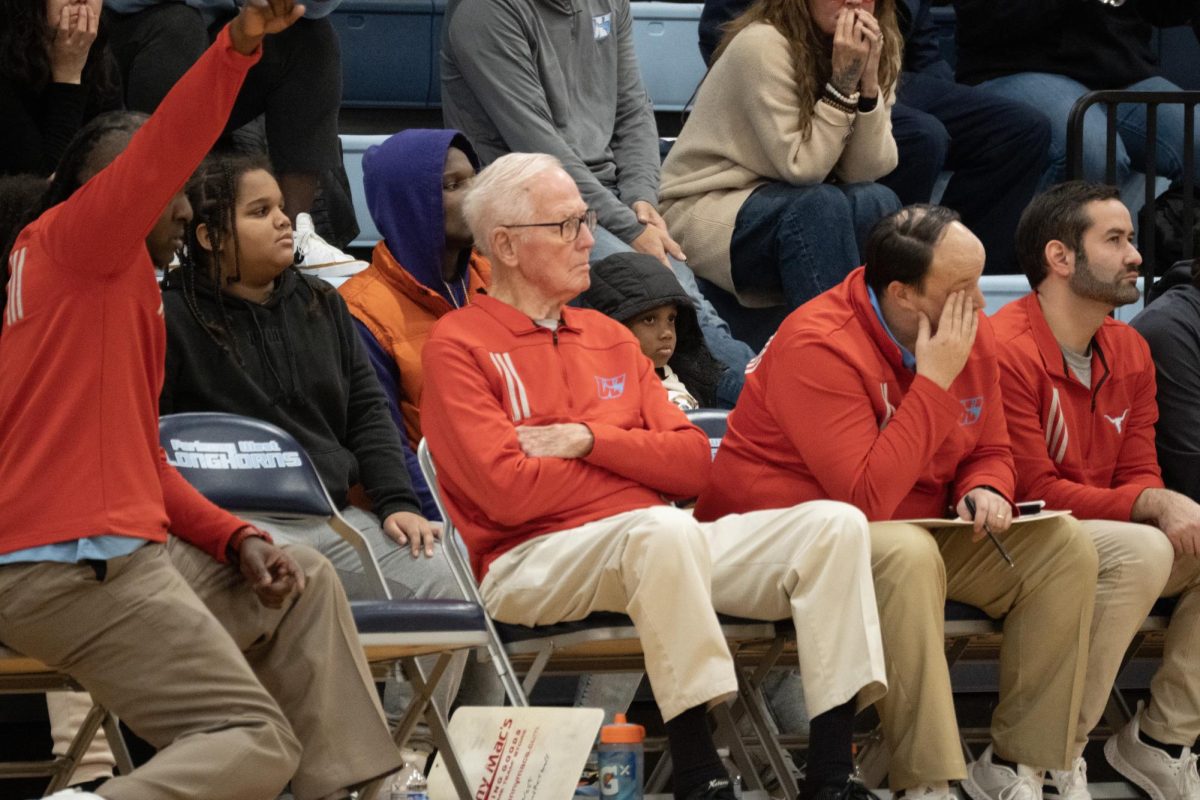
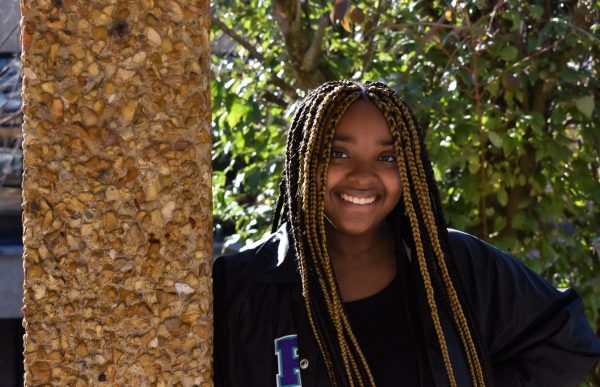
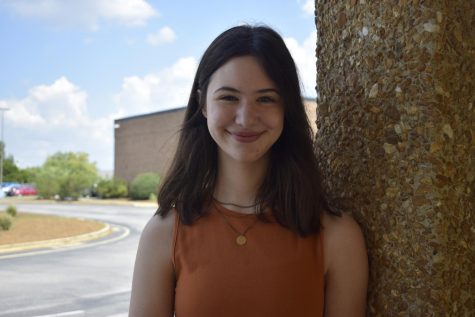
Stacey Hoffman • Mar 10, 2021 at 11:46 am
Elizabeth, this is an incredible article that highlights both the positives and negatives of the VICC program. I appreciated the interviews with students, and your strong understanding of the history of the program. You are doing great work! I look forward to reading more of your articles!
Lindi Schoenfeld • Mar 8, 2021 at 8:44 am
This is a well-written piece that explores both sides of the issue. Elizabeth does a great job of including statistical data as well as eye witness testimony, and expert opinion to create a picture of what the program is and the direction that it is heading. She connects the situation to readers with her sensory language and emotion. Terrific job writing about an important topic.
I’m excited to see what becomes of both Ms. Franklin and Ms. Banks. Both are driven, brilliant individuals who see the value in diversity and opportunity.
LeAnn • Mar 7, 2021 at 8:37 pm
I think this article was very needed – I admit I did not know much about this subject. The author made a great point.
Ken • Mar 5, 2021 at 5:50 pm
I think this an issue worthy for public policy discussion .
Megan Geraghty • Mar 3, 2021 at 9:32 pm
I am so proud of the writer of this article! I didn’t have the pleasure of teaching Elizabeth Franklin, but I know her well. I did experience the joy of having Tristen Banks in my class at Claymont. I was so thrilled to be invited by Tristen to hear her read her poetry at middle school. I was moved to tears by her insight at such a young age.
As elementary school teachers, we often wonder what path our students will take as they move on to middle school and high school. We always knew these girls would go far. I can’t wait to see how they change this world for the better.
The purpose behind the VICC program, and what it means to Parkway students resonates throughout this article.
Thank you girls for your eloquent way of showing what is important about Parkway’s VICC program. You all make Parkway proud.
Keep going strong!!
Miss Geraghty 💗
Tia Reed • Mar 3, 2021 at 5:12 pm
Great Job!! I loved being apart of this. The topic is one that needed to be discussed in more detail and I think you brought all these ideas together well!
Genise Sanders • Mar 3, 2021 at 5:10 pm
Very impressive and thorough article.
Julia Mapp • Mar 3, 2021 at 5:10 pm
This piece was very insightful on the challenges of diversity that are still faced in our school systems.
Kim Hanan-West • Mar 3, 2021 at 10:04 am
Incredible article that thoroughly analyzes the benefits of this program and dives into the issues of equity and diversity in our community. Well done.